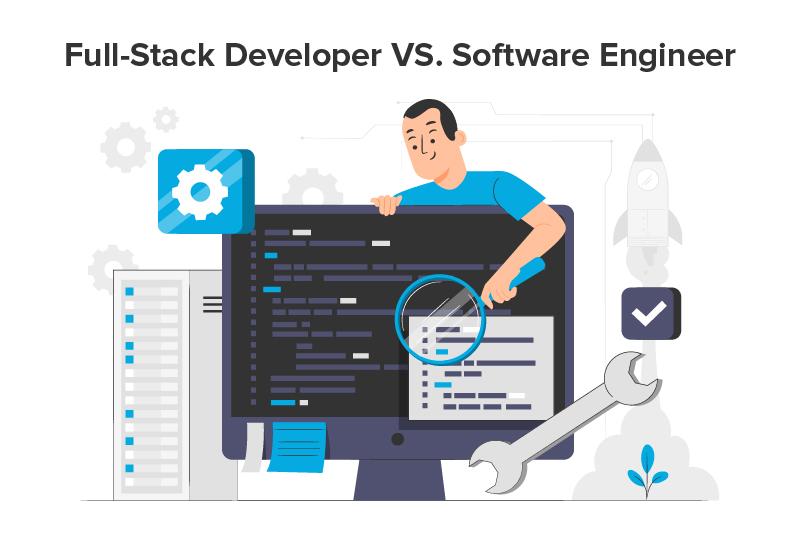Devoted Developers vs. In-House Teams: Which Is Right for You?
The choice in between using specialized developers and maintaining an in-house group is a significant one that can affect the trajectory of your jobs and general organization technique. Committed programmers supply a degree of adaptability and specialized experience that can be advantageous for details, temporary initiatives. Conversely, internal groups contribute to a natural company culture and a nuanced understanding of long-term goals. By checking out crucial elements such as budget, task scope, and preferred control, you can much better establish which approach straightens with your business requirements. The implications of this selection expand beyond immediate outcomes-- consider the more comprehensive influence on your service landscape.
Comprehending Dedicated Programmers
The growing need for specialized skills in the technology industry has resulted in the development of committed developers as a sensible option for many organizations. These professionals are commonly acquired on a task basis, allowing firms to leverage certain competence without the lasting commitment connected with permanent hires. Devoted programmers are commonly embedded within a client's team, giving versatility and scalability to fulfill project requirements.
This version allows organizations to access an international ability swimming pool, which is particularly beneficial in a swiftly developing technological landscape. Devoted programmers can be sourced from various geographical locations, making sure that companies can discover the ideal skill set at affordable prices. They typically bring a wide range of experience and expertise, having actually serviced diverse projects across various sectors.
In addition, devoted designers can concentrate specifically on the tasks at hand, boosting performance and effectiveness. They are equipped to integrate flawlessly right into existing workflows, collaborating very closely with in-house groups to attain task purposes. This strategy not just lowers the burden of recruitment and training but also permits companies to stay active, adjusting quickly to changing market needs and technical advancements.
Benefits of In-House Teams

Furthermore, internal teams often tend to have a much deeper understanding of the company's goal, values, and objectives. This alignment can improve employee involvement and motivation, as staff member really feel extra attached to their job and the company's success. Furthermore, having a devoted internal group permits far better alignment of methods and purposes, as these participants are regularly concentrated on the firm's priorities.
In-house groups also help with quicker decision-making processes, as they can respond extra rapidly to modifications and difficulties. The recognized connections and experience with firm protocols permit streamlined operations and minimized miscommunication. Eventually, the mix of a natural culture, alignment with business objectives, and efficient interaction makes internal groups a valuable asset for numerous organizations, especially those wanting to cultivate long-term development and advancement.
Cost Considerations
When assessing cost factors to consider, both committed programmers and internal teams existing unique monetary implications for companies. Involving dedicated designers typically involves a pay-per-project or per hour rate design, which can be cost-effective for services with fluctuating task needs. This technique permits adaptability in scaling sources up or down, making sure that business only spend for the solutions they best app developers need.
In comparison, internal teams require dealt with prices, including incomes, benefits, and overhead costs such as workplace and equipment. While this design uses greater control and prompt accessibility of resources, it might result in greater long-lasting expenditures, especially if the workload does not validate a full-time personnel.
Moreover, firms should think about the hidden expenses related to recruitment and training of in-house employees, which can additionally stress spending plans. Sometimes, the time and resources invested on handling an in-house team can interfere with the organization's core business goals.

Project Monitoring and Flexibility
Job monitoring and versatility are critical variables that affect the choice between devoted programmers and internal groups. Dedicated groups typically have established procedures for taking care of projects effectively, leveraging specific methods like Agile or Scrum, which assist in repetitive progression and versatility.

Ultimately, the selection in between internal teams and devoted designers depends upon the wanted level of flexibility and the specific project management demands. Firms need to evaluate their operational characteristics, project complexity, and source accessibility to establish which choice lines up best with their critical purposes.
Making the Right Choice
Picking the best advancement technique-- committed programmers or in-house groups-- needs a careful evaluation of numerous variables that straighten with a firm's tactical objectives. software development partner. First, take into consideration the nature of the job. If it requires specialized abilities or a fast scale-up, devoted developers might be better. Alternatively, in-house groups can provide much better connection and combination with existing employees.
Next, examine your spending plan. Committed developers often offer a cost-effective solution for short-term jobs, while internal groups might incur greater long-term expenses because of incomes, advantages, and overhead expenses. Analyze the level of control and cooperation wanted; in-house teams typically foster more powerful interaction and placement with company culture.
Furthermore, think about the time frame. If prompt results are essential, devoted programmers can be onboarded rapidly, whereas constructing an in-house group takes some time for recruitment and training. Finally, consider the long-term vision of your company. Investing in an in-house team may yield far better returns over time if constant development is important. Eventually, the decision hinges on a complete analysis of these aspects, ensuring placement with your business's overall objectives and functional needs.
Conclusion
To conclude, the choice in between internal groups and committed programmers hinges on project needs and business objectives. Committed programmers supply flexibility and specific expertise, making them suitable for short-term efforts. Conversely, in-house teams cultivate a cohesive society and deeper positioning with lasting goals. Mindful assessment of spending plan constraints, job timelines, and desired control levels is necessary for navigate to these guys determining the most proper strategy, making certain alignment with tactical concerns and functional efficiency.
The choice between making use of devoted developers and preserving an internal group is a substantial one that can affect the trajectory of your projects and total service strategy.Task monitoring and versatility are critical aspects that influence the choice in between specialized programmers and in-house teams. offshore software development.In contrast, in-house teams may succeed in preserving a regular task monitoring structure due to their experience with the company's society and long-lasting goals. Committed programmers usually offer an economical remedy for short-term projects, while in-house teams may sustain greater long-term expenses due to incomes, advantages, and overhead costs.In final thought, the decision between specialized programmers and in-house teams hinges on job requirements and business objectives
Comments on “The Advantages of a Dedicated Development Team in a Competitive Market”